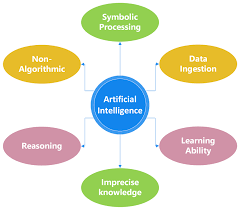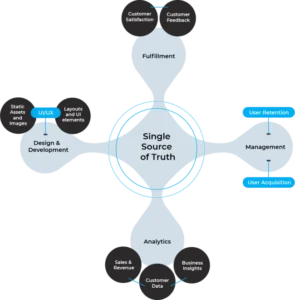Artificial Intelligence (AI) has emerged as one of the most transformative technologies of the 21st century. With applications in diverse fields ranging from healthcare to finance and entertainment, AI’s capabilities continue to evolve and shape the world around us. This blog post explores the features of Artificial Intelligence, shedding light on its key characteristics and how they contribute to making AI a powerful tool in today’s digital age.
What is Artificial Intelligence?
Artificial Intelligence refers to the simulation of human intelligence in machines that are programmed to think, learn, and solve problems autonomously. AI systems use complex algorithms, data processing techniques, and machine learning models to mimic human cognitive functions such as decision-making, reasoning, and language processing. Understanding the features of Artificial Intelligence allows us to comprehend how AI impacts various industries and enhances technological advancement.
Key Features of Artificial Intelligence
AI possesses several defining characteristics that set it apart from traditional computing technologies. Here are some of the key features of Artificial Intelligence that make it such a dynamic and versatile technology.
1. Machine Learning Capabilities
One of the most prominent features of Artificial Intelligence is its ability to learn from data. Through machine learning (ML), AI systems can process large datasets, identify patterns, and improve their performance over time without being explicitly programmed. This capability enables AI systems to become more accurate and efficient, making them invaluable in applications like predictive analytics, recommendation engines, and image recognition.
- Example: In e-commerce, AI-powered recommendation systems learn from users’ browsing behavior and past purchases to suggest personalized products.
2. Natural Language Processing (NLP)
Another essential feature of Artificial Intelligence is Natural Language Processing (NLP), which allows AI to understand, interpret, and generate human language. NLP enables machines to interact with humans in a more natural way, making technologies like virtual assistants, chatbots, and language translation systems possible.
- Example: AI chatbots use NLP to respond to customer queries in real time, providing personalized support and improving customer service.
3. Automation and Robotics
Automation is a core component of AI, allowing machines to perform repetitive tasks without human intervention. Robotics, an extension of AI, combines hardware and software to create intelligent machines capable of performing complex tasks in industries like manufacturing, healthcare, and logistics.
- Example: In the automotive industry, AI-driven robots are used in assembly lines to increase efficiency and reduce the likelihood of human error.
4. Vision and Image Recognition
AI systems are equipped with vision technology that enables them to recognize objects, faces, and scenes. This feature of Artificial Intelligence is particularly useful in applications such as autonomous vehicles, facial recognition systems, and medical imaging.
- Example: Self-driving cars use AI-powered image recognition systems to detect pedestrians, vehicles, and road signs, ensuring safe navigation.
The Benefits of Using Artificial Intelligence
AI’s advanced features offer numerous advantages to businesses and individuals alike. Here’s how the features of Artificial Intelligence translate into tangible benefits:
Improved Decision-Making
With AI’s ability to analyze large volumes of data and identify patterns, it enables better decision-making. AI systems can provide data-driven insights that help organizations optimize processes, predict market trends, and make more informed decisions.
Increased Efficiency and Productivity
AI-powered automation significantly boosts efficiency by taking over mundane and repetitive tasks. This allows human workers to focus on more strategic and creative activities, leading to increased productivity across industries.
Enhanced Customer Experience
AI, through NLP and machine learning, helps personalize customer experiences. By analyzing user data and interactions, AI systems can offer tailored recommendations, provide 24/7 support through chatbots, and enhance customer engagement.
The Future of Artificial Intelligence
The features of Artificial Intelligence will continue to evolve, making it even more integrated into our daily lives. Future advancements in AI may include improvements in emotional intelligence, ethical AI models, and enhanced human-AI collaboration. As AI becomes more ubiquitous, its features will likely drive innovation in every sector, from healthcare to education and beyond.
Promoting Artificial Intelligence Content Through Social Media and External Links
To raise awareness and engagement around AI, sharing content on social media platforms and linking to external resources is essential. AI companies and educators can promote the features of Artificial Intelligence by discussing real-world applications, industry use cases, and the latest research on platforms like LinkedIn, Twitter, and YouTube. External links to reputable sources also improve the credibility of the content and boost SEO rankings.
Conclusion: Harnessing the Power of Artificial Intelligence
Understanding the features of Artificial Intelligence is key to appreciating its role in shaping the future. From machine learning and automation to natural language processing and vision technology, AI is equipped with powerful features that revolutionize industries and enhance everyday life. As AI continues to develop, its potential to improve decision-making, increase efficiency, and personalize experiences will only grow, making it a technology to watch in the coming years.





